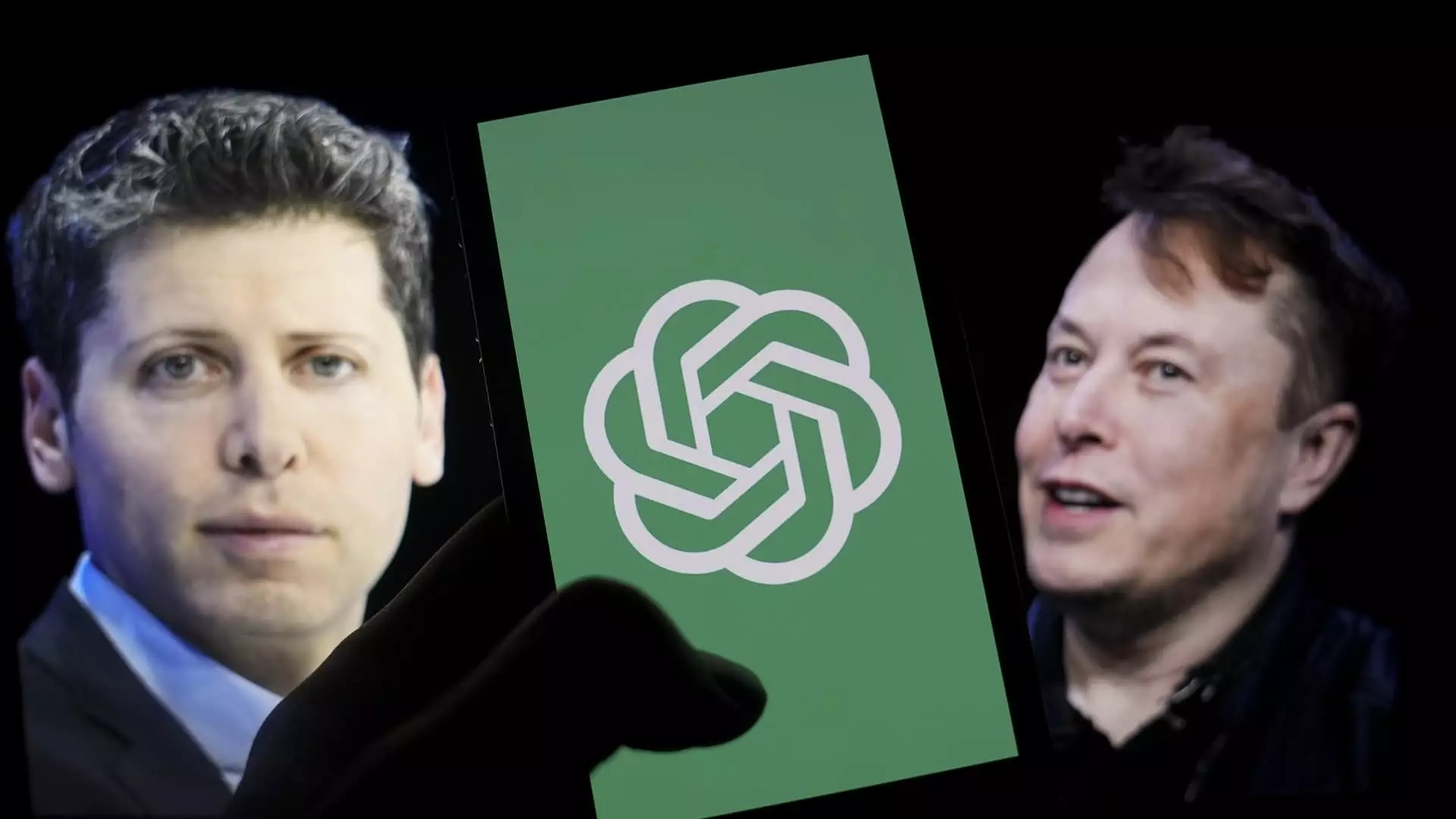Elon Musk, the polarizing tech mogul known for his ventures across several industries, has revitalized a legal confrontation with OpenAI, a prominent player in the artificial intelligence landscape. This renewed clash stems from Musk’s concerns about OpenAI’s direction as it eyes a full-fledged profit model — a shift he argues could stifle competition and unfairly disadvantage rival companies, particularly his own AI startup, xAI.
On a recent Friday, Musk, along with xAI and previous OpenAI board member Shivon Zilis, took significant steps by filing a request for a preliminary injunction against OpenAI. This legal maneuver aims to halt OpenAI’s transition into a completely for-profit entity and seeks to prevent alleged practices that could be deemed anti-competitive. Musk’s attorneys are leveraging federal racketeering laws in their argument, asserting that OpenAI has contravened not only competition laws but also ethical business practices through collusion with major investors like Microsoft. As stated in their claims, the central allegation revolves around OpenAI’s purported coercion of investors to refrain from backing competing enterprises, including Musk’s own xAI, which raises serious questions about market accessibility and fairness.
The filing unearths a multitude of layers that underscore the complexities of modern AI business dynamics. For instance, Musk’s attorneys accuse OpenAI and Microsoft of entrenching their market position by orchestrating a “group boycott,” effectively walling off crucial investment avenues for newer firms. Such allegations highlight a narrative of consolidation that emerges frequently in the tech industry, where larger entities inhibit smaller challengers from competing fairly.
OpenAI’s journey from a non-profit founded in 2015 to a capped-profit structure in 2019, and now potentially to a fully profit-driven model, reflects a broader trend in the tech sector. Companies are increasingly seeking to attract investment and support for rapid growth in a competitive environment where innovations in AI are accelerating at an unprecedented pace. This transformation is not just a corporate strategy; it symbolizes a pivot in how AI firms may prioritize shareholder interests over broader ethical considerations.
Musk’s criticisms are punctuated by OpenAI’s meteoric rise, amplified by the success of its flagship product, ChatGPT. The immense valuation of OpenAI in recent funding rounds underscores its centrality in the AI ecosystem, but it also raises eyebrows regarding the implications of such dominance. The competitive landscape has compelled contenders like xAI, Anthropic, and other emerging firms to navigate a field where investment capital can often be monopolized by a select few. The potential for unequal growth opportunities fosters a climate of tension, where accusations of monopolistic behavior loom large.
This legal showdown is part of a larger narrative concerning the ethics and governance of AI development, particularly around issues of monopolization and corporate influence over technology. Musk’s claims, as stated in court documents, suggest a need for regulatory scrutiny not only on OpenAI’s business practices but also on the broader relationships in the AI sector among tech giants. With Microsoft’s substantial investments totaling billions, it raises questions about the integrity of these partnerships and the impacts on competitive balance.
The Federal Trade Commission (FTC) has recognized the growing concern in this arena, launching inquiries into how relationships between AI developers and major tech companies function. This indicates a recognition that the rapid evolution of AI technologies may necessitate new regulatory frameworks designed to protect market competition and ensure equitable opportunities for all players. Musk’s legal action could be instrumental in shaping such policies, particularly if it succeeds in illuminating the opaque dynamics between startups and established tech giants.
The juxtaposition of Musk’s ambitions for xAI against the backdrop of OpenAI’s established power reveals significant stakes that could reverberate throughout the tech industry. If Musk’s legal argument prevails, it could incite a dramatic shift in how AI companies engage with investors and safeguard their competitive positions. Conversely, a ruling in favor of OpenAI could reinforce the prevailing competitive practices that characterize the industry’s landscape and further entrench the status quo.
As this case unfolds, it will be pivotal for stakeholders to observe not just the immediate implications, but the overarching evolution of market dynamics within the AI sector. How these developments play out will likely set precedents for issues of competition, regulation, and the ethical responsibilities of AI entities moving into the future. The interplay between innovation, competition, and regulatory safeguards epitomizes a critical moment in the maturation of the ever-evolving landscape of artificial intelligence.


Leave a Reply
You must be logged in to post a comment.